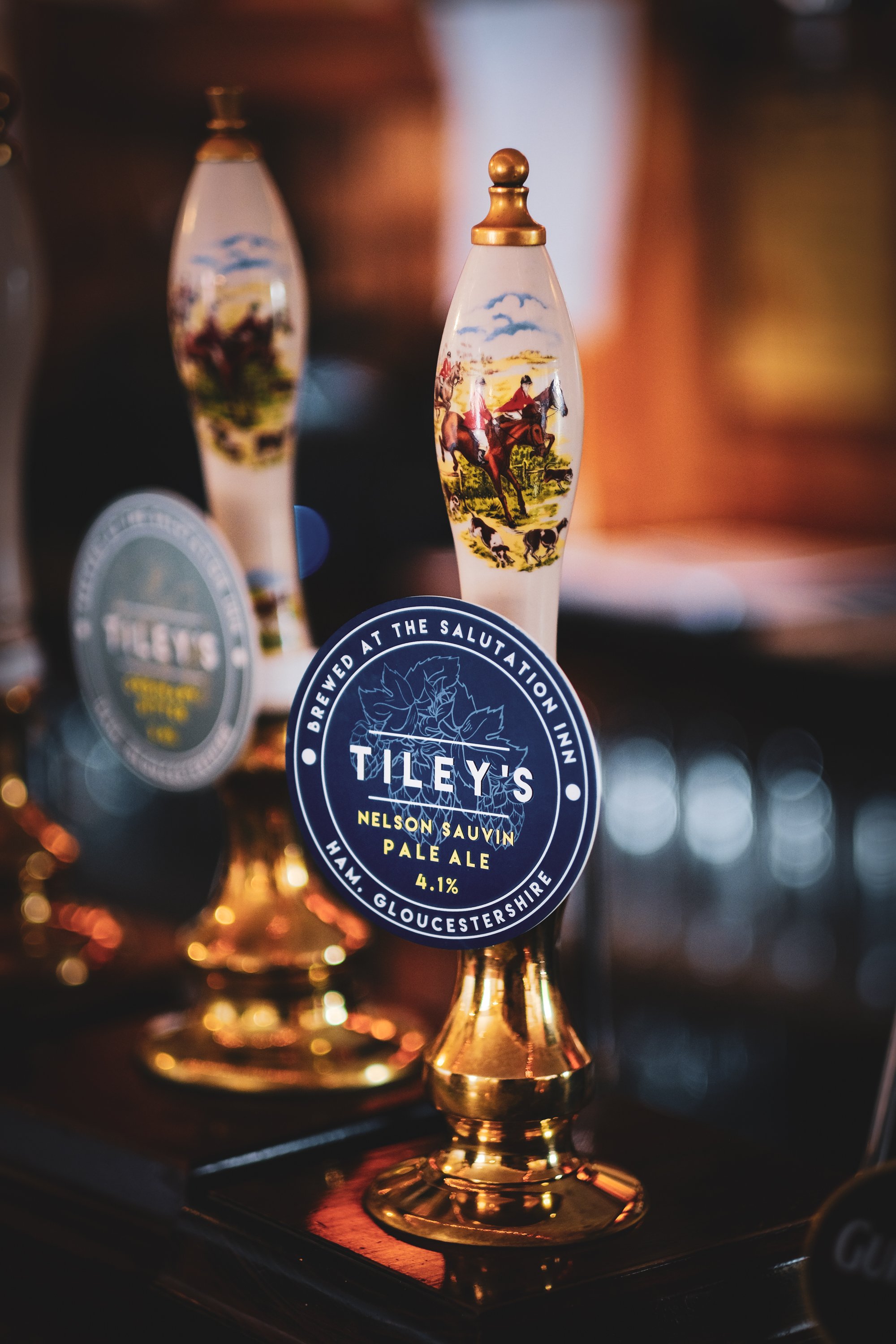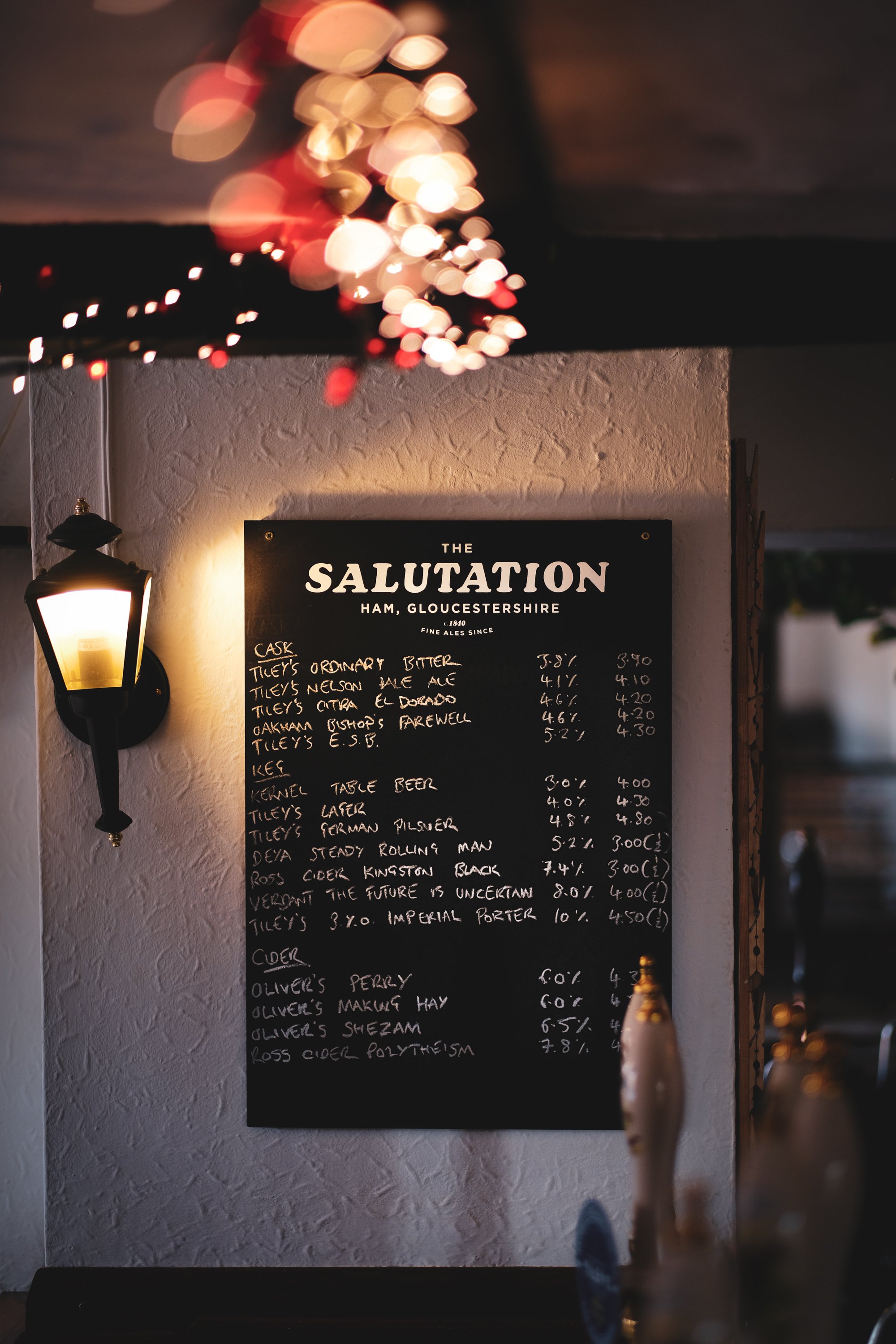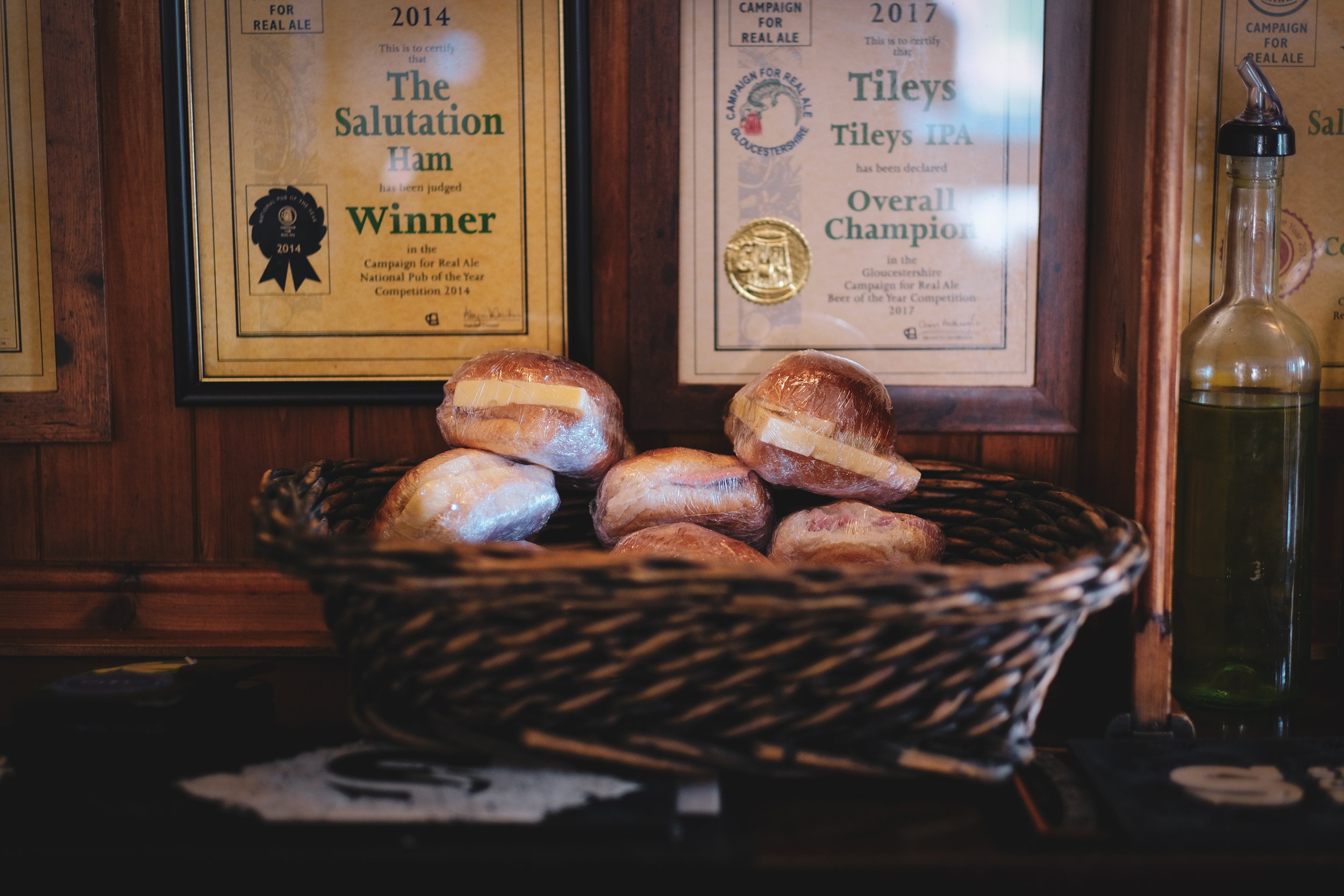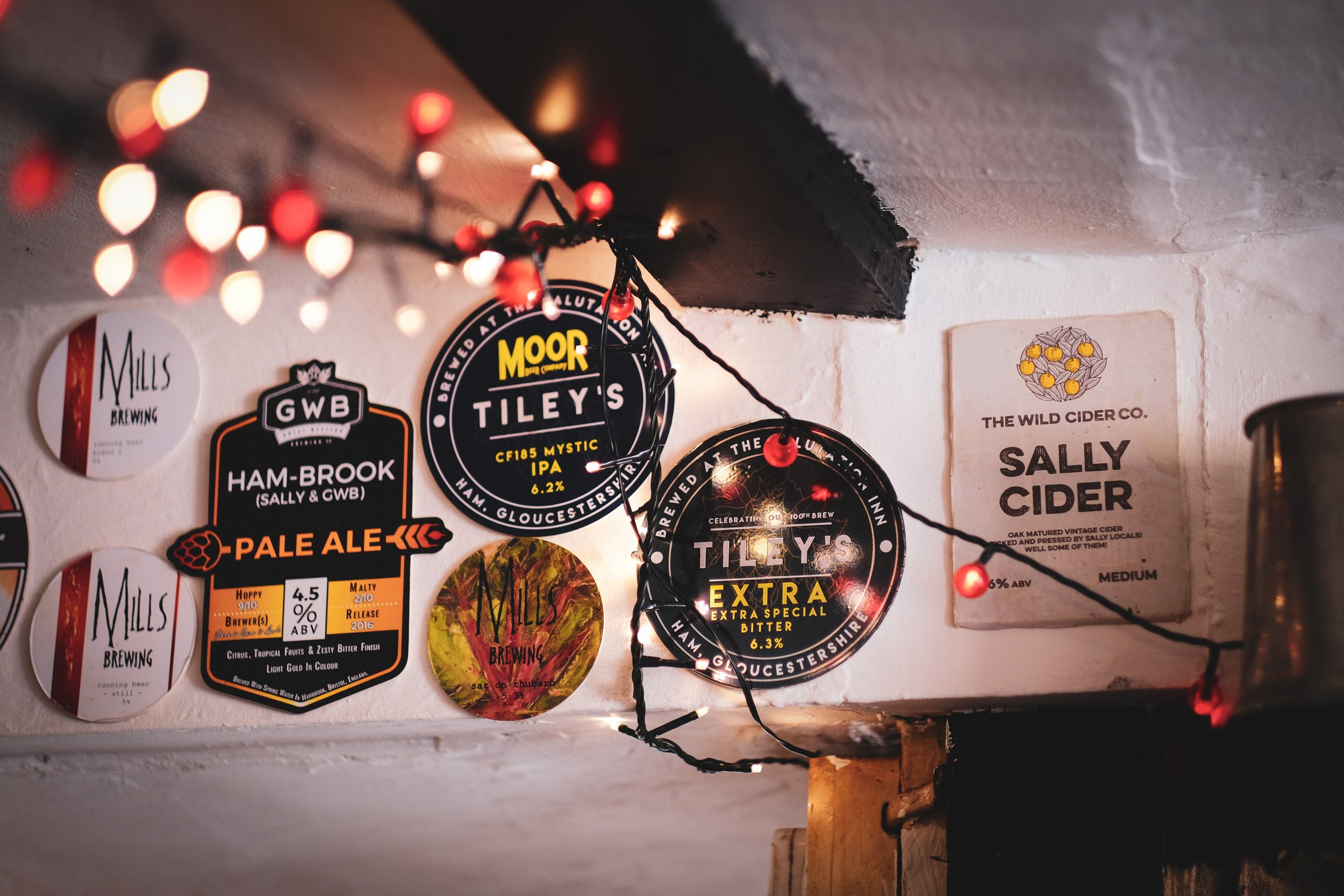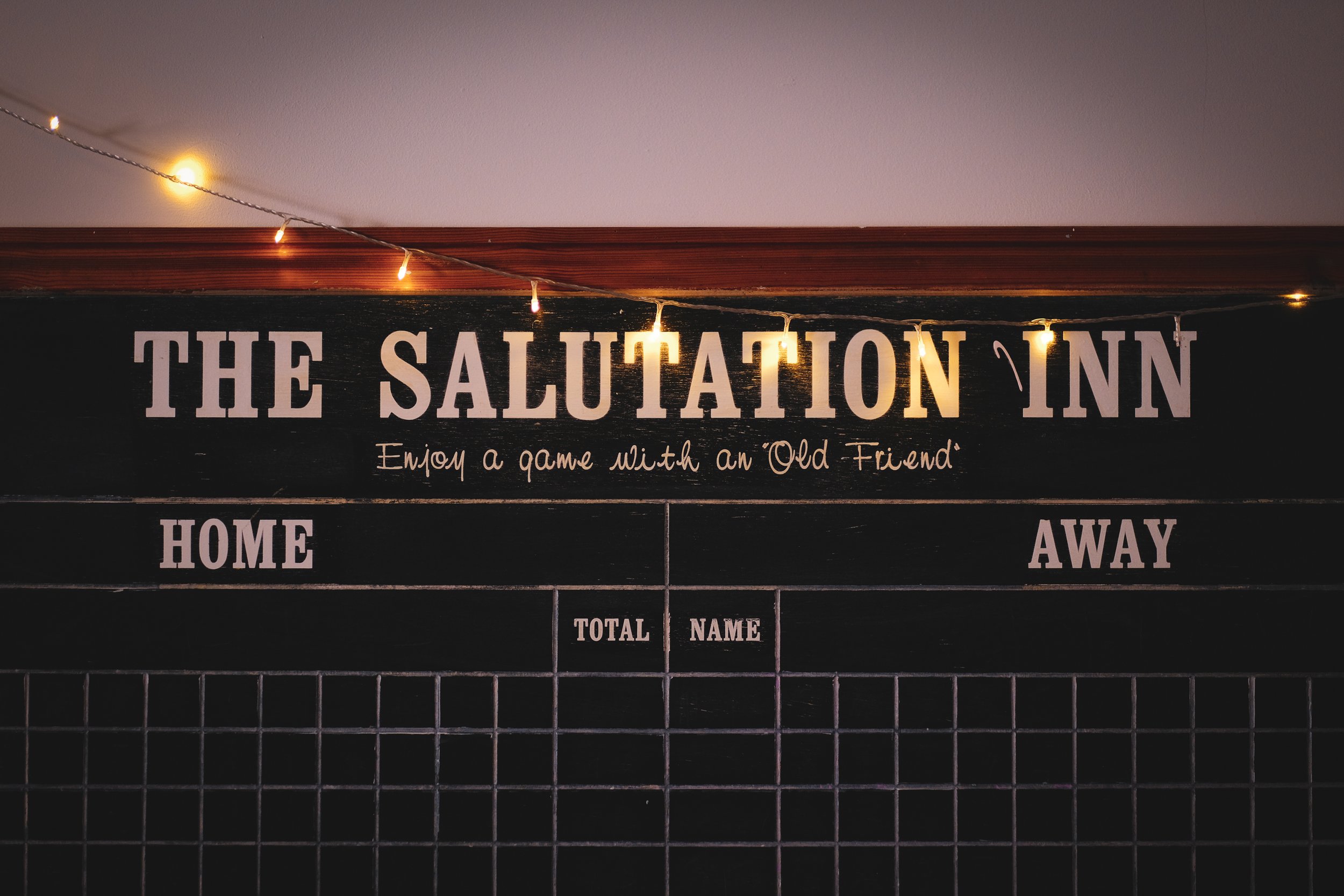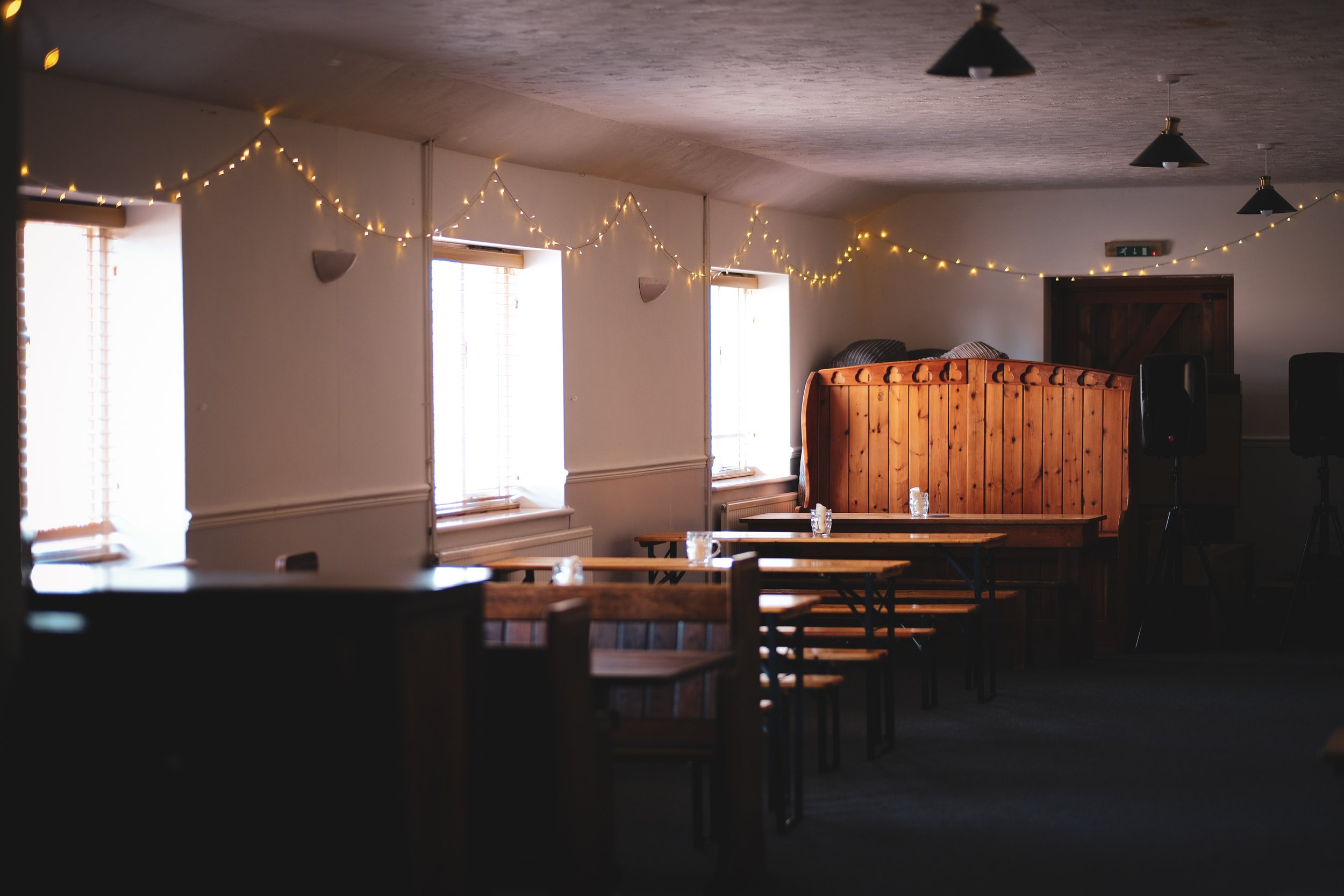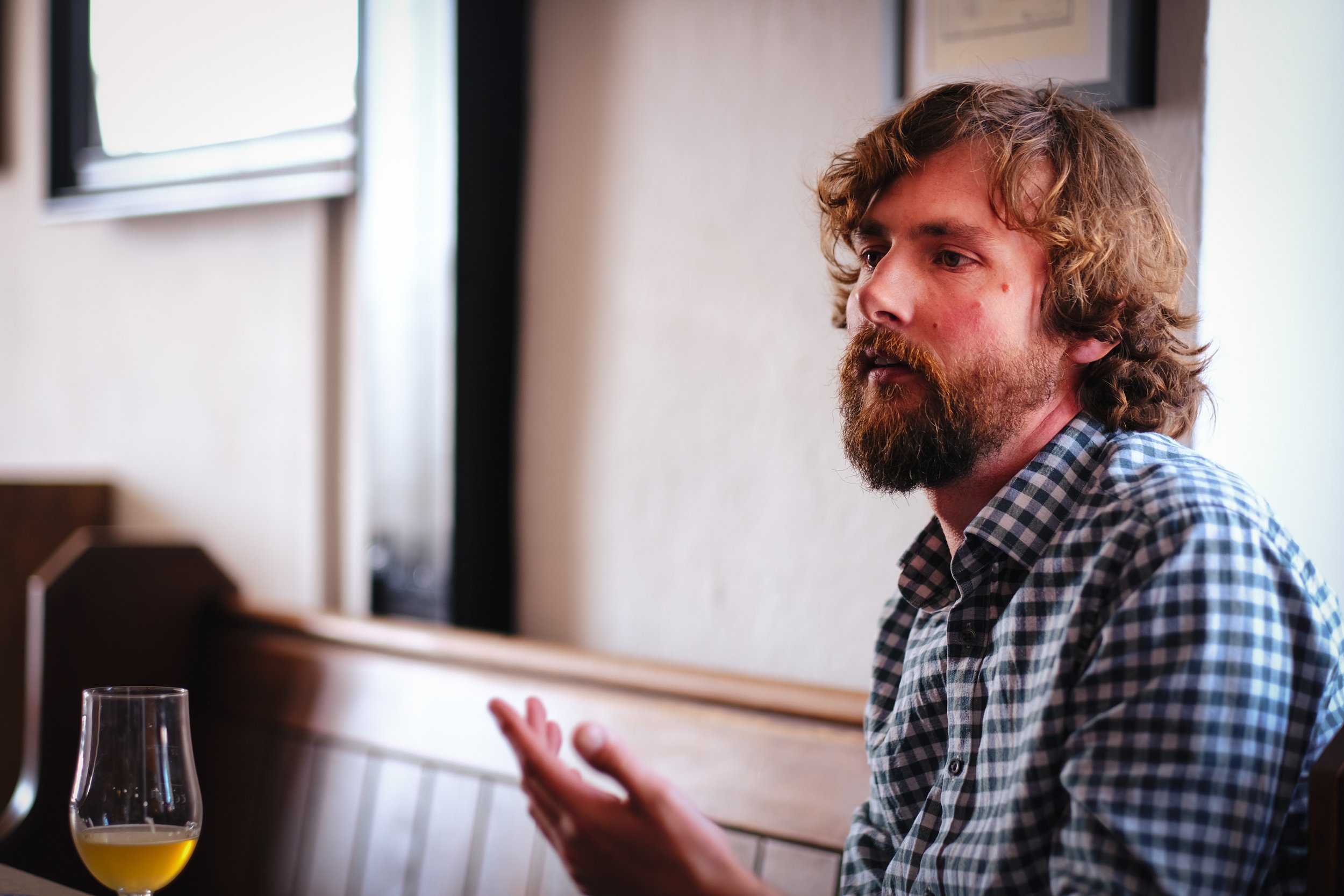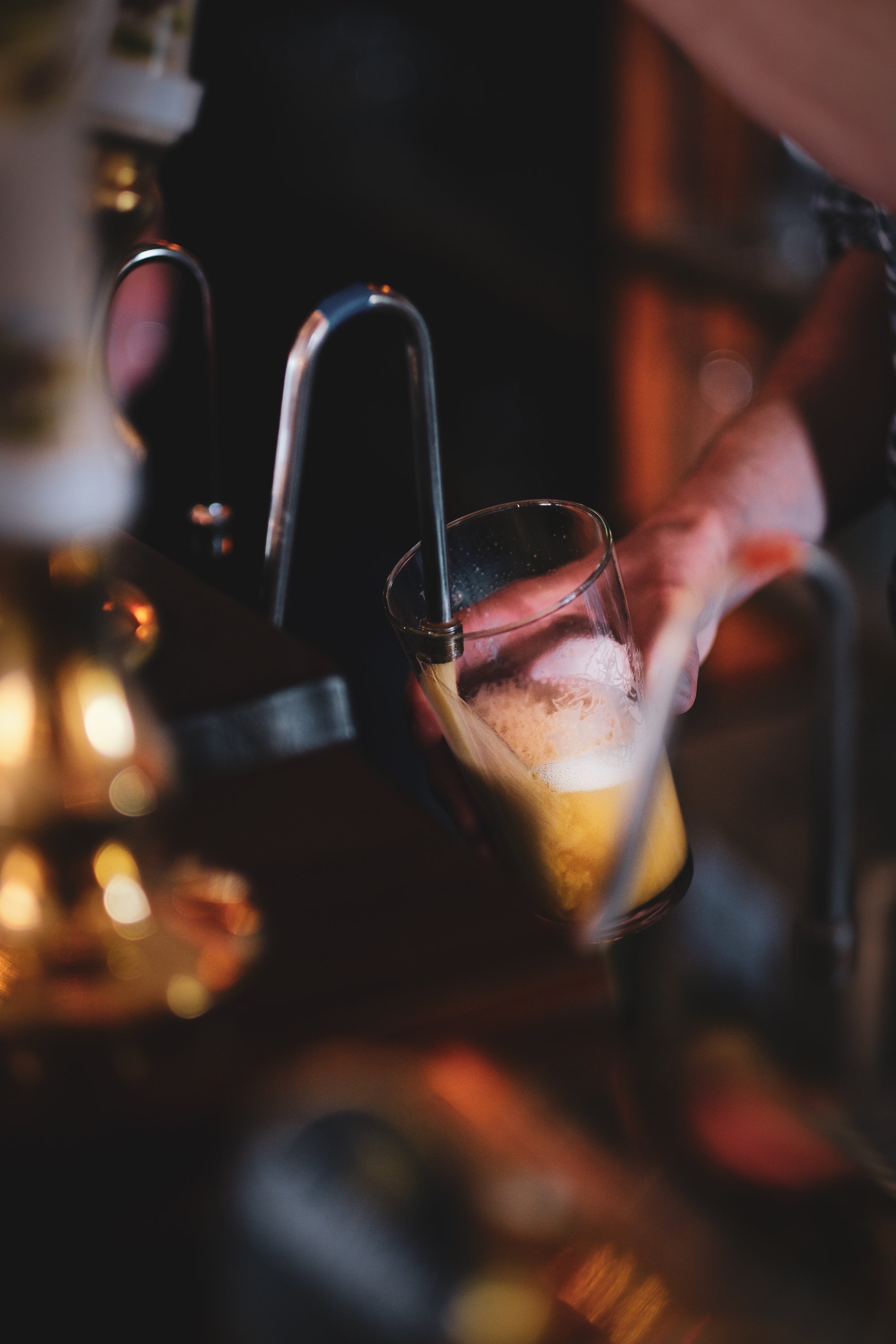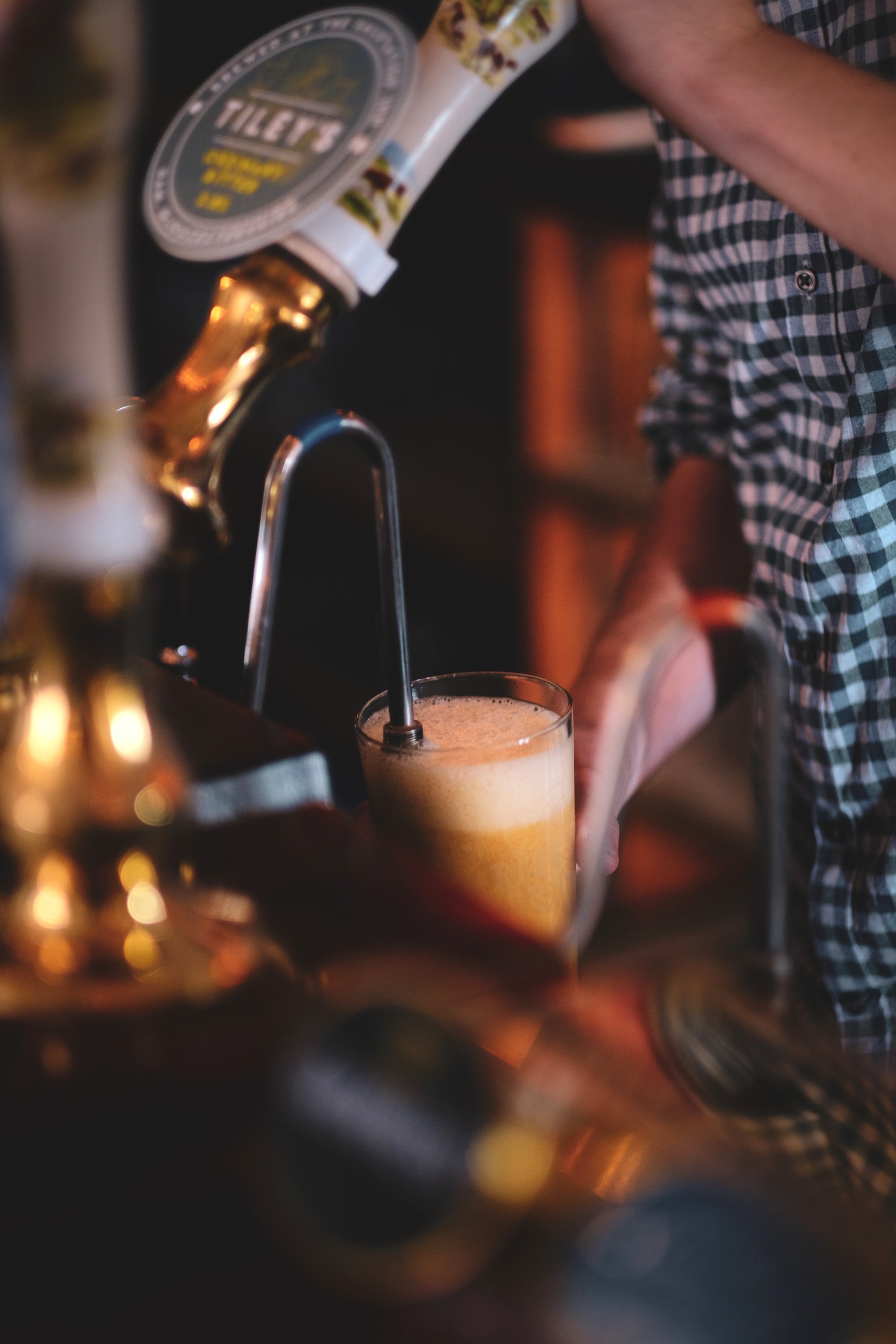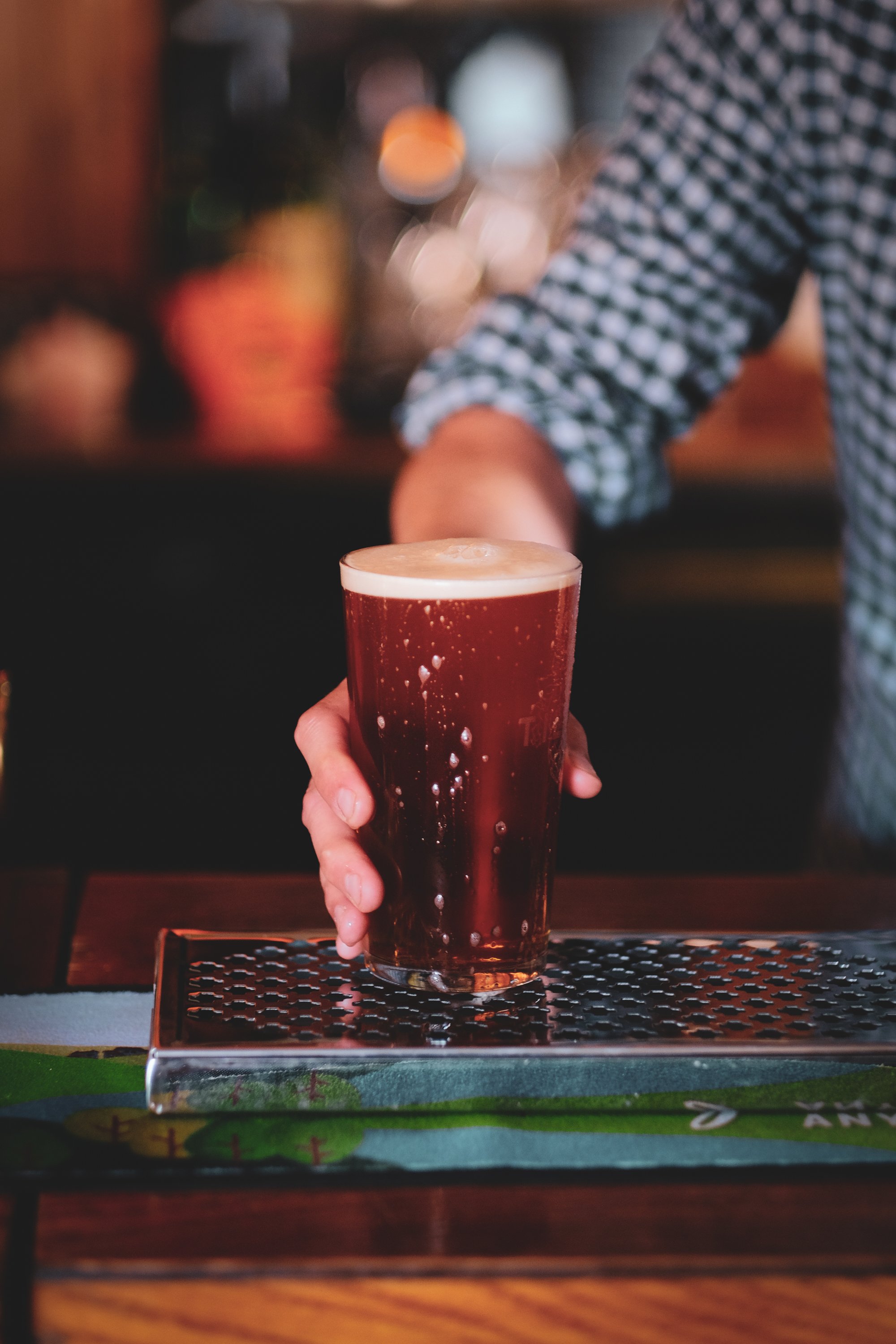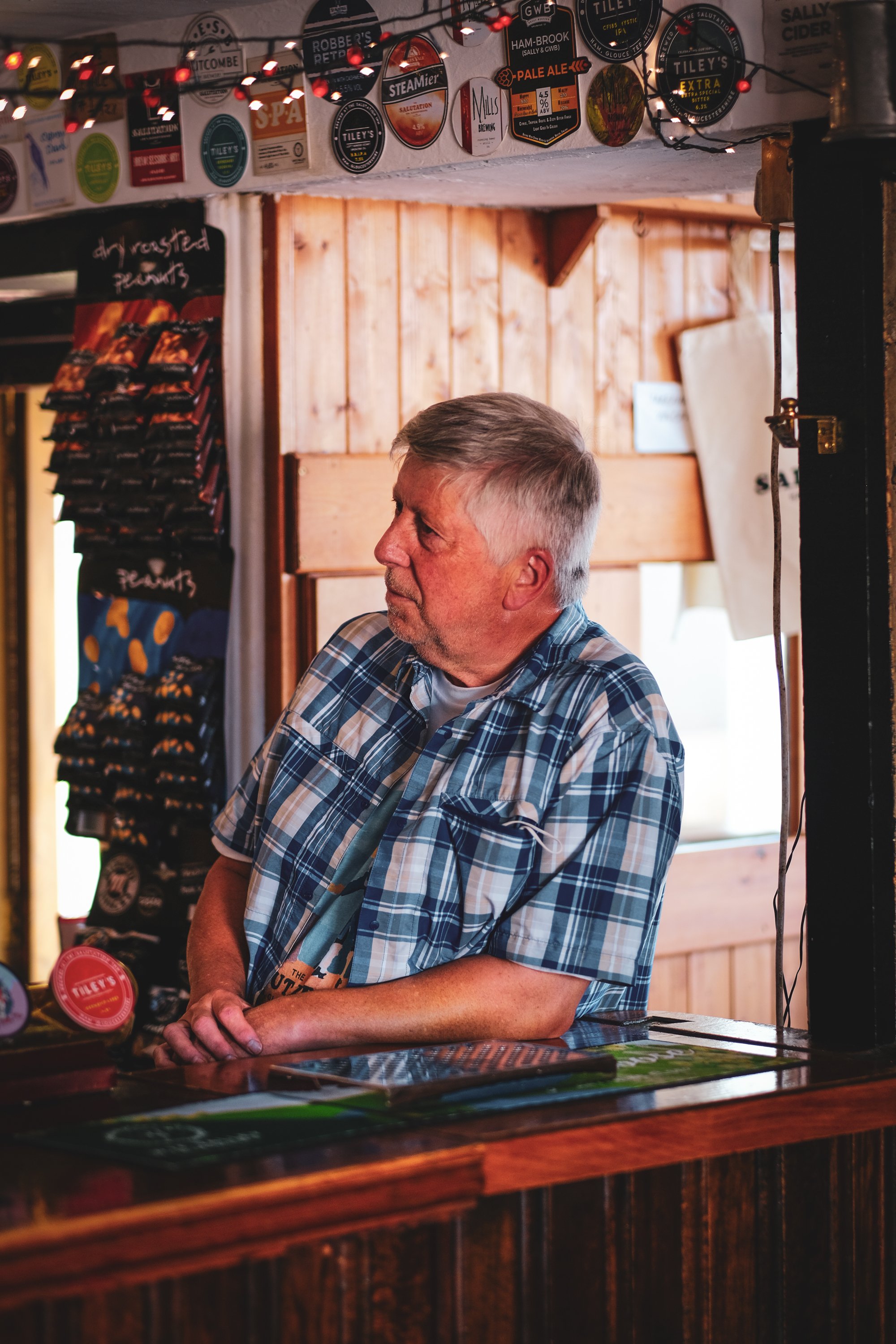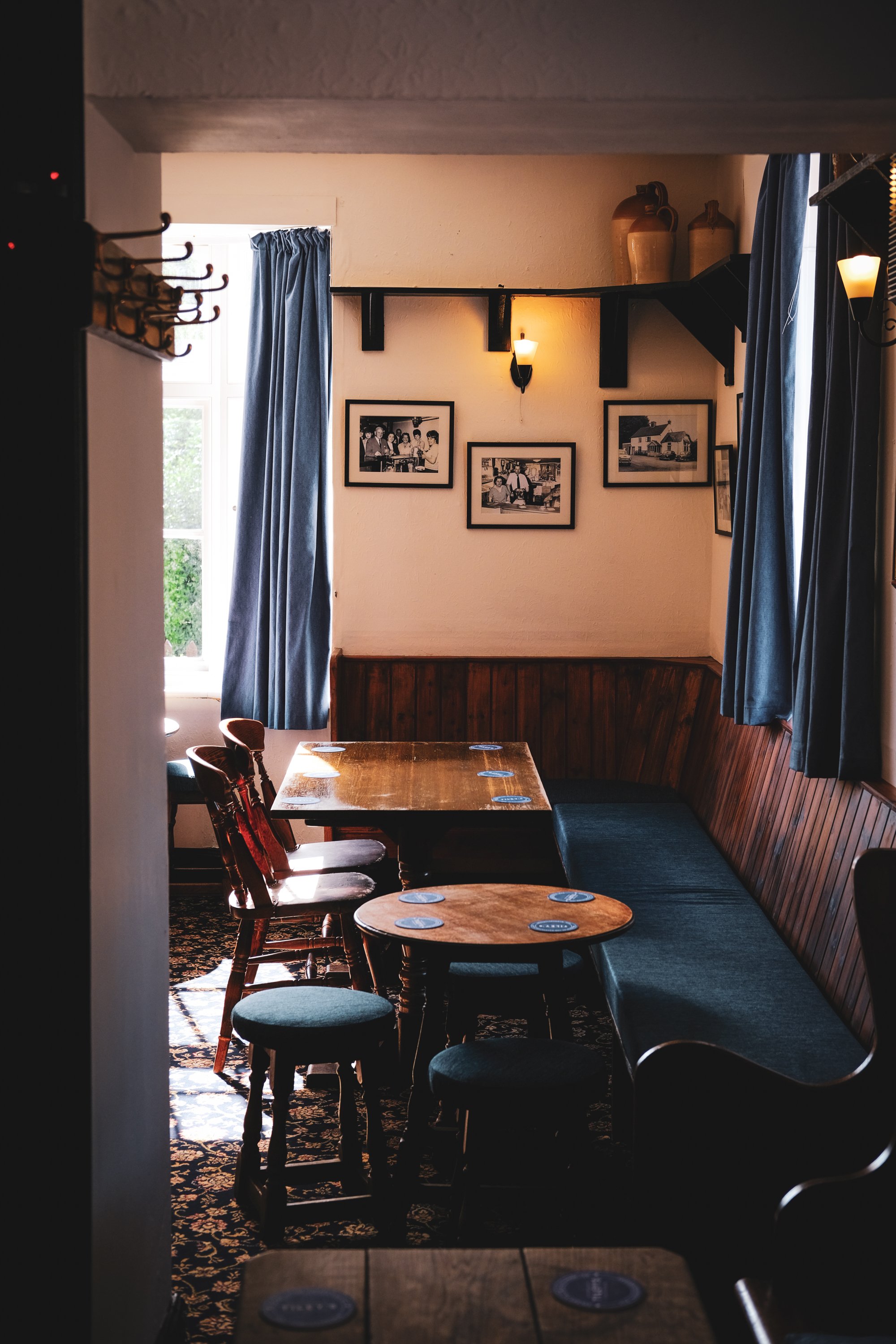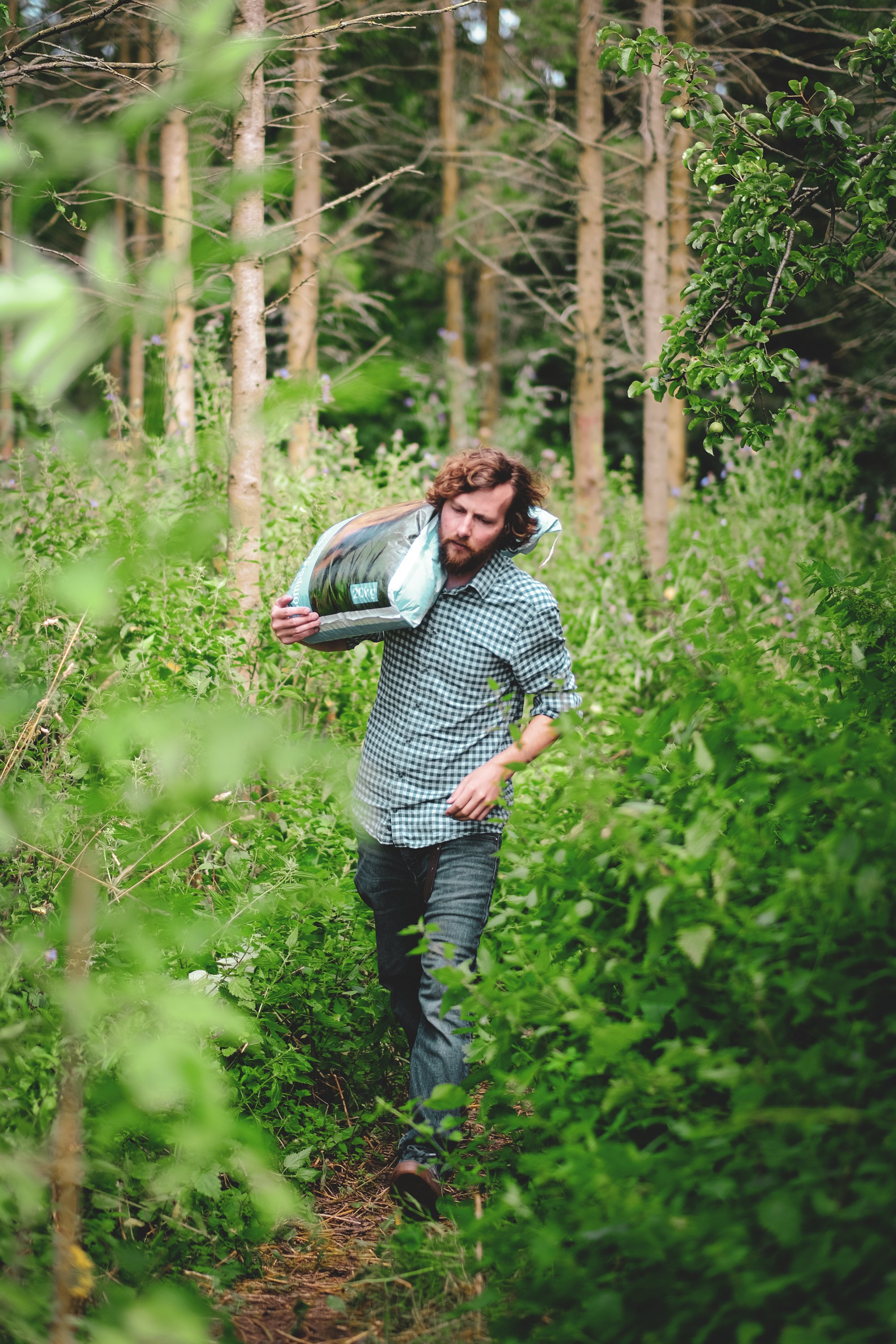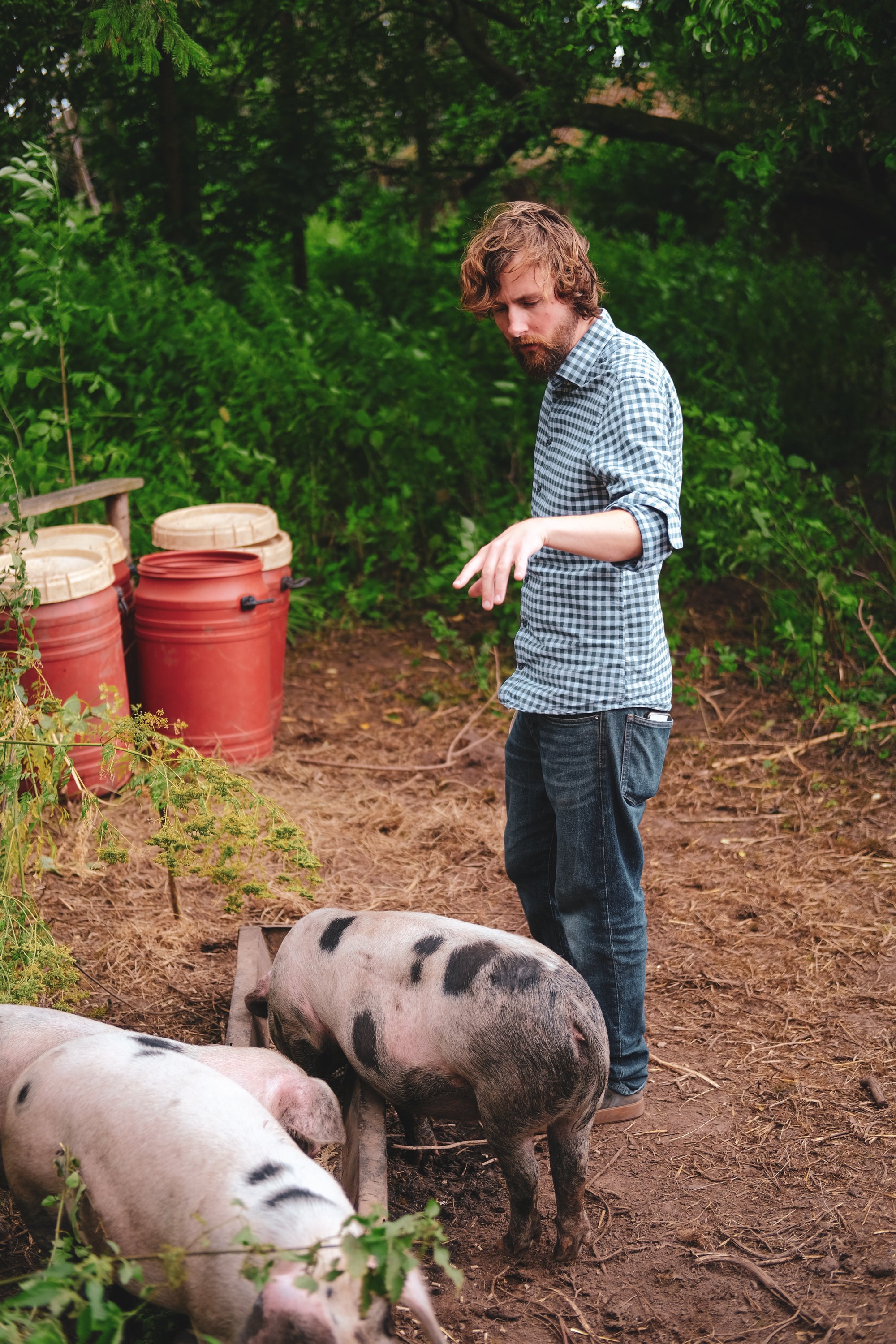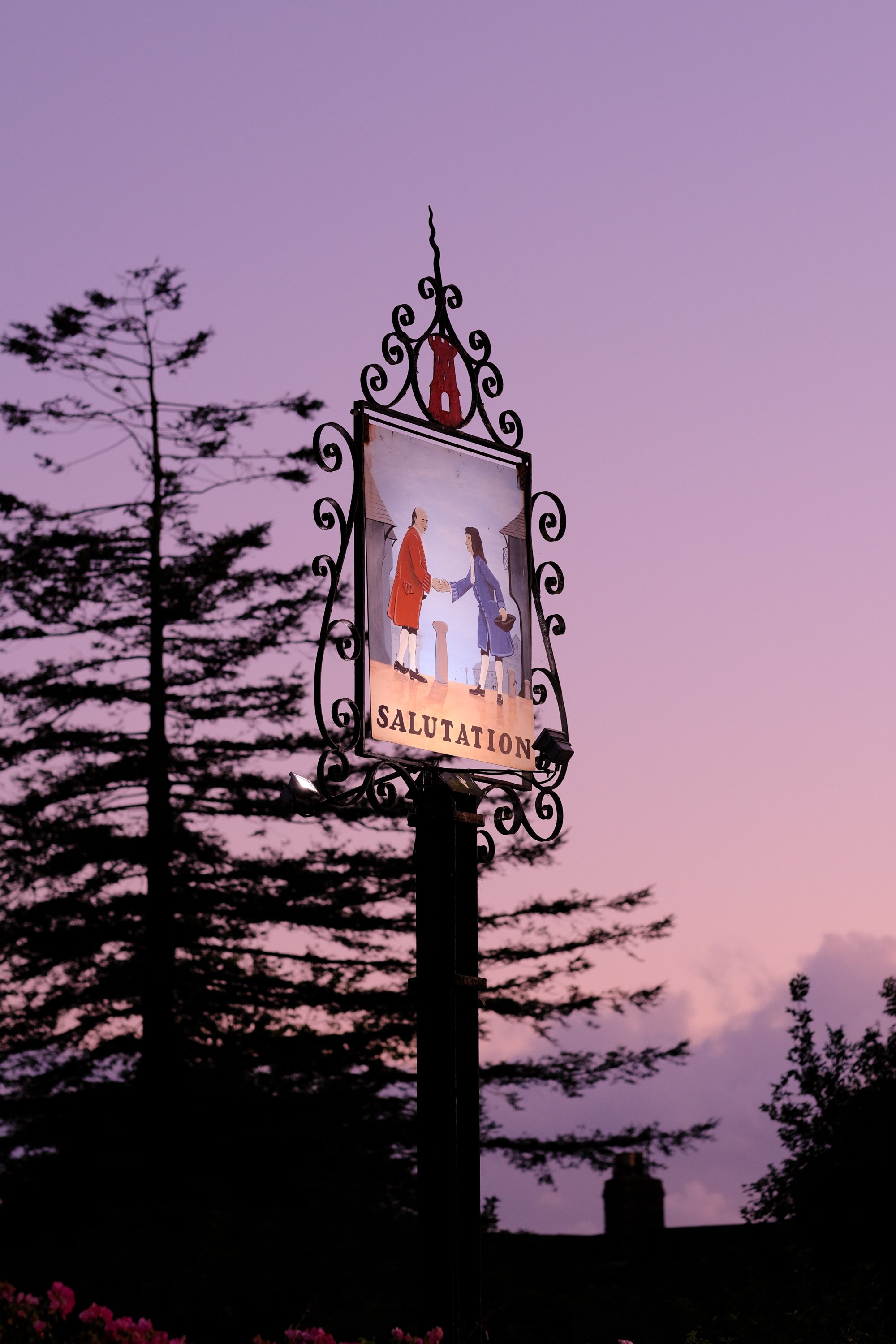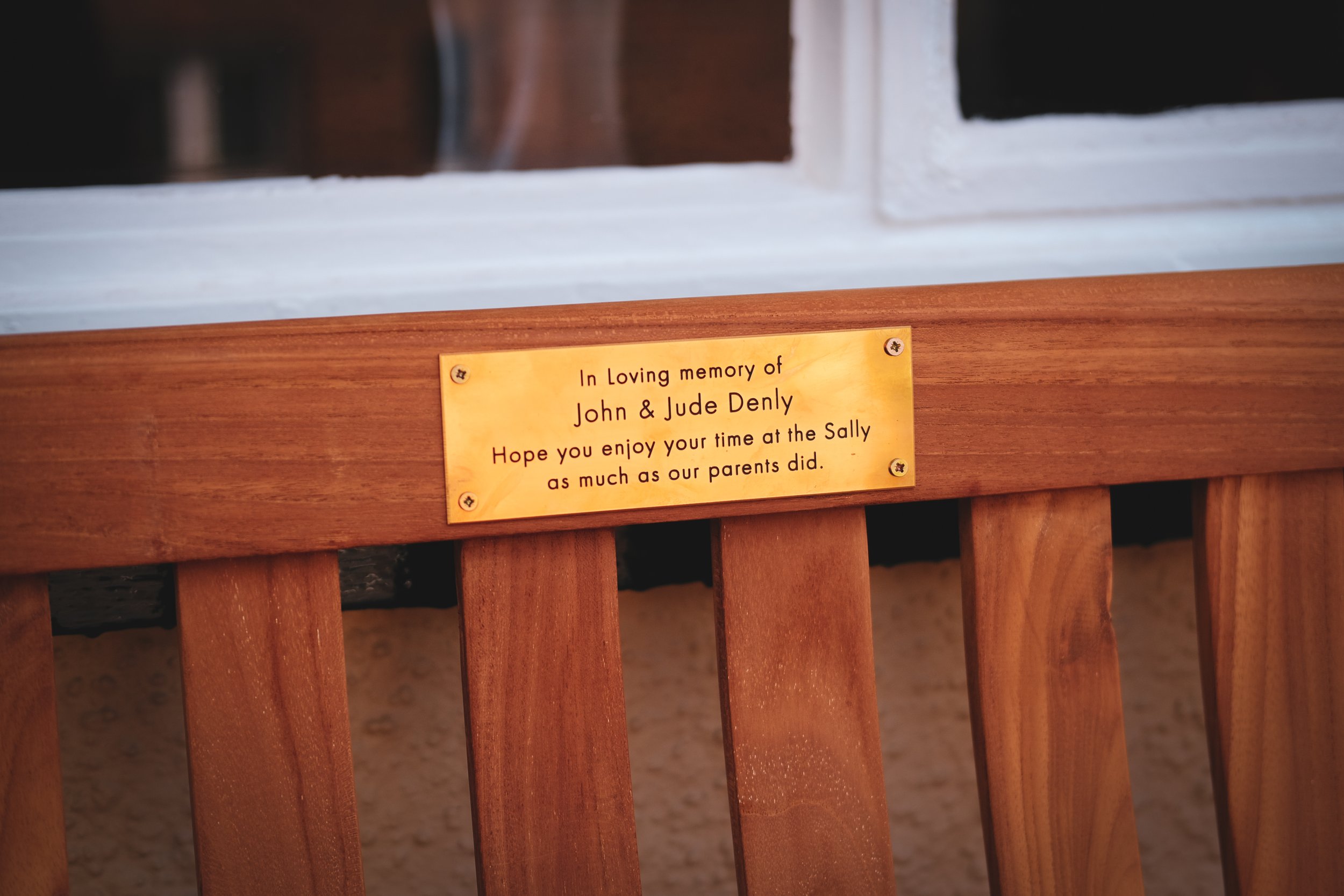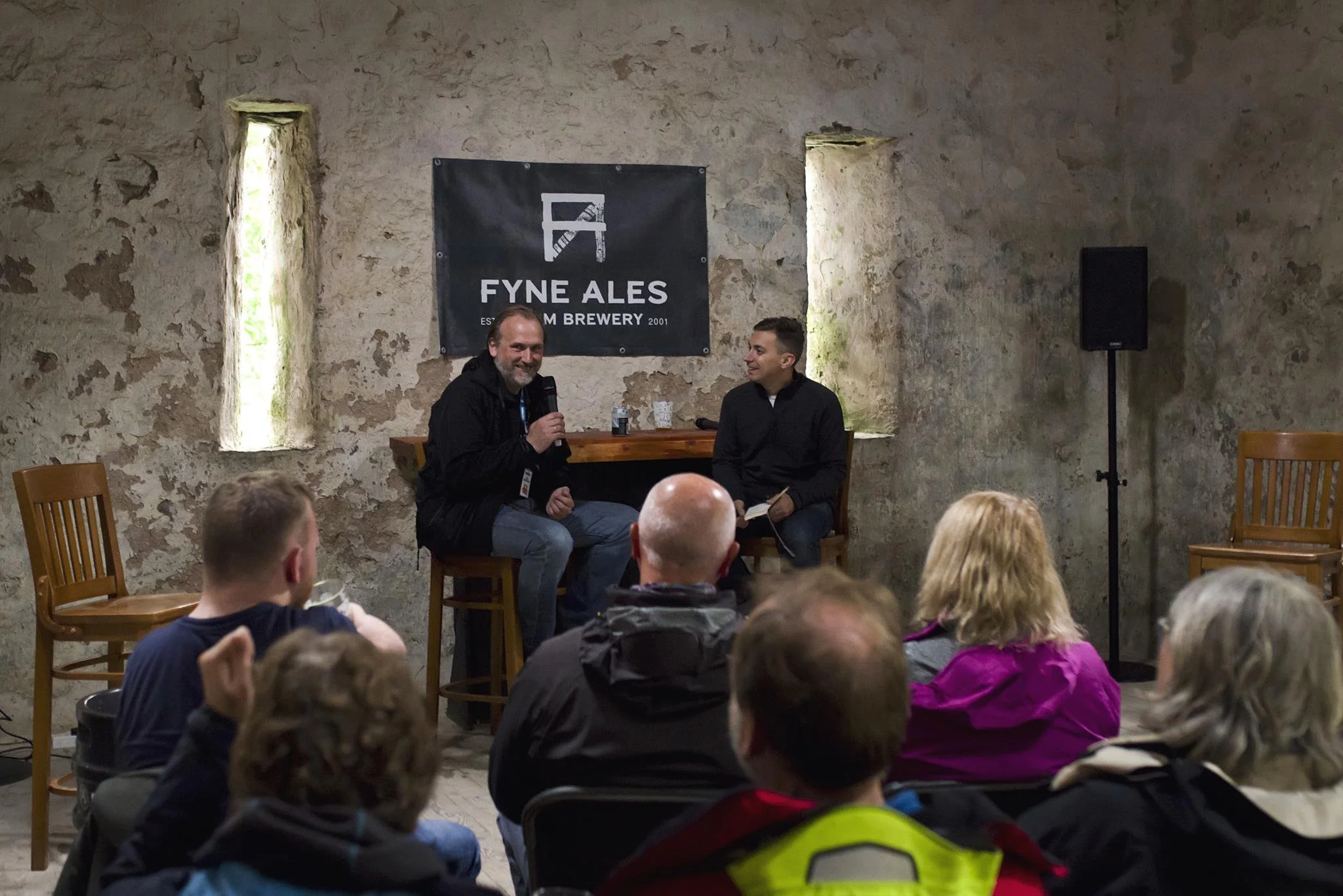You Had Me At Hello — The Salutation Inn at Ham, Gloucestershire
The Salutation Inn at Ham, just outside of the quiet, becastled town of Berkeley in southern Gloucestershire, is a pub of dreams.
It’s not necessarily that it’s some pitch-perfect, utopian amalgamation of pub-ly ideals—everything to everyone all of the time—and nor is it entirely without foibles, but it is wonderful. In fact, it may well be my very favourite pub.
It is, though, Orwellian, in the sense of the famous essay, The Moon Under Water, on the perfect pub. Had George been compelled to write a rural sequel (after all, as he notes, “The qualities one expects of a country pub are slightly different”), the pub described may somewhat resemble The Salutation.
Photography by Lily Waite
The pub is welcoming and homely, with low ceilings, pew-like wooden benches, and a fireplace lending welcome warmth to the pub’s two front rooms in winter. The bar is lined with taps and hand pulls pouring beer and cider from across the South West—including the pub’s own brewery adjoining at the rear—as well as the trusty and ubiquitous Guinness.
The Salutation Inn is revered for its stewardship of beer and cider, but equally is simply a pub full of locals, neighbours, and friends.
Food is served sporadically, but rolls filled with paving slabs of local ham or wedges of cheese as thick as a much-loved and dog-eared novel—to my mind surely the platonic ideal of pub food—sit behind the bar in a woven basket, wrapped in cling film. The staff are friendly and warm, led by grumpy-but-loveable landlord Pete Tiley, who hand rears Gloucestershire Old Spots pigs in a walled orchard a short stroll away. There is a man named Jerry The Cheese; you may meet a friendly horse.
***
Pete grew up a few miles away from Ham in the village of Charfield, and as a child would visit The Salutation—or Sally for short—with his parents as a treat. Years later, when living in London he would dream of moving back to the countryside, the pub being the focal point—he imagined he would live in one of the houses next door. In his late twenties, while working in telecoms in central London, he spent his time homebrewing and drinking in pubs. In his words, beer became an obsession.
“My dad phoned me up and said ‘The Sally’s coming up for sale and they used to have a brewery out the back—maybe you could open a brewery and someone else could run the pub’,” he says. “So I went and looked at it and just said ‘fuck it, let’s go for it.’”
““Someone will fix a tyre on someone’s bike, or say ‘I’ve got a load of beetroot, would you like some beetroot?’ to a complete stranger.””
Pete took on the pub in April 2013 from a couple named Don and Sue Dunbabin, under whose stewardship the pub had built a strong reputation and had won several CAMRA awards. He’d never pulled a pint before, let alone run a pub, or even worked behind a bar, but he threw himself into it. “I just worked my socks off—everything happened really quickly: I quit my job, left London, got married, bought a pub, all within the space of like 4 months.”
He was soon pulling 90-hour weeks, desperate to make it work and prove himself. “It was really strange. Some people were really lovely, and some people were like ‘who the fuck is this kid from London,’” he explains. “I looked about 12, and some people were just horrible. I was a young person and people thought I didn’t know how to run a pub. So it was this desperation of ‘I’ve taken on a pub that is great and I cannot let this fail—I’ve quit my job and spent all my money. This pub cannot fail.’”
Within the first 9 months, The Sally won CAMRA Pub of the Year for the local area, then for the county, and then for the South West region. A few months later, in early 2014, Pete and the team were named the Campaign’s National Pub of the Year.
“It all went mental because we had loads of press and everyone turned up asking ‘can we book a table to have a meal?’ No, fuck off,” he says, ever the curmudgeon. “That isn’t what the pub is about, the pub was always meant to be about drinking, about community. That’s what it’s all about: food always gets in the way of that social interaction—you never mingle in a restaurant. Drinking’s much more open and inclusive.”
***
The walled garden which houses the pigs is dotted with apple and pear trees, and the odd damson. The pigs, raucous and rambunctious as we step through the door in the elderly wall, are fed on a mix of apples, cheese curds, and occasionally pellets. Once the private garden of the Berkeley estate manager
(the castle’s estate covers 6,000 acres across the local area), it is shown on early 19th Century maps surrounded by orchard after orchard—a cider history now long gone.
Preserving what’s left of this lost heritage is important to Pete. Every year he joins John Barnes of The Wild Cider Company in nearby Wotton-under-Edge—with as many locals as he can muster to help pick and press apples—to make the Sally Cider, a mainstay of the pub’s rotating cider offering. Money is donated from sales to help replant lost Gloucestershire orchards.
Pete bought his pigs from a farmer called Jonathan Crump, whose Single Gloucester cheese is made entirely from the milk of Old Gloucester cattle, as opposed to the majority of the milk coming from other, more commercially viable cows. Pete describes him as both “lovely” and “completely mad,” and one of his heroes. “There’s only one who’s mad enough to make his purely from milk from Old Gloucesters,” he says.
“People like Jonathan Crump, like Tom Oliver, like Albert and Mike from Ross Cider, like Jonny and Gen Mills,” he continues. “People that go out of their way to do things in a traditional way that’s authentic, that doesn’t really make a lot of commercial sense or isn’t the most obviously commercial way of doing things, when people do things like that—that’s quite inspiring.”
““Some people were really lovely, and some people were like ‘who the fuck is this kid from London?””
Interspersed with the odd beer from further afield, the lineup is mostly local: beers from the South West sit alongside numerous Tiley’s beers—there’s the excellent, nutty, and pleasing Ordinary Bitter, the rich and rounded Extra Special Bitter, and delicious pales that feature an ever-rotating selection of hops.
Pete maintains a good relationship with a number of cider makers, and this is reflected on the bar: as well as a rotating selection of excellent draft ciders from the likes of Oliver’s, Ross, Gregg’s Pit, Wild Cider and more, there are plenty of bottles available in the fridges. The pub is also, arguably, the best place in the world to drink beer from the much-revered Mills Brewing; Jonny produces wort in the brewery at the back, and the beer is fermented, aged, and bottled half a mile down the road on the edge of Berkeley.
“I think [Pete] looks to tradition to enable him to indulge completely in the role of the grumpy but lovable landlord,” Jonny Mills says. “Focussing squarely on good beer, good cider and good cheer and eschewing modern gastropub leanings such as coffee or food in the evening.”
***
A pub is nothing without people. Despite Pete’s pretence of dourness and misery, the atmosphere is welcoming—it doesn’t take long for me to be included in various discussions with regulars. It’s not unique amongst countryside pubs in its palpable sense of community, but it’s a feeling that underpins everything else. Pete might be grumpy, but it’s evident he cares deeply about his customers.
“I think the beer is well kept—ok—and that draws people in,” Pete says. “But the people that come in are just really fucking lovely. They’re just like a massive group of friends, kind of like a family, and I think that just comes across to people when they come in. Someone will fix a tyre on someone’s bike, or say ‘I’ve got a load of beetroot, would you like some beetroot?’ to a complete stranger. There’s just really lovely things that people do here because they’re all just friends and it’s a really nice community.”
The Sally does indeed have a certain draw, one centred around the community and communal nature of drinking there. Plenty of the locals and regulars travel past several other pubs en route to the pub; it’s more than just about the beer.
“It's virtually impossible to go [to the Sally and] have a quiet drink,” Jonny says. “Before you realise it, you're sat with 12 people you didn't come in with and last orders have come and gone.”
Though such descriptions often stray into cliché, there is a touch of the familial about the regulars. Not immune to division, the community remains split over Brexit, mask-wearing, and the great British culture wars, but regardless, communality prevails. There is, like all families, a touch of the bizarre amongst the generosity and love, too.
“Every once in a while a couple of regulars bring in a massive spread of cheese and bread for everyone to dig into, for no occasion whatsoever,” Jonny says. “[And] a couple of fairly elderly literal grave-diggers come in fairly late in the evening several nights a week. They win the weekly meat raffle more often than is spiritually comfortable.”
When the sadly now-departed locals John and Jude Denly suffered health issues, other regulars rallied around them, providing them with meals and checking in if they didn’t show up at the pub for a couple of days. “They were a great example of what a community wet-led pub can do in terms of supporting people, especially in rural areas,” Pete says. “I kind of feel like they both stayed alive longer than they would have done because of the support network they had here.” Their daughter bought the memorial bench that now sits in front of the pub, and a photograph of the couple sits above their former seats inside.
This all-encompassing sense of community was what saved Pete from walking away from the pub completely in 2020. When the pub closed at the start of the first lockdown, he was so exhausted and burnt out from running two pubs (he also ran The Butcher’s Hook in nearby Thornbury, for a few years), that he was considering packing it all in. Speaking to regulars eager for the pub’s return, coupled with the overwhelming support the pub received with its home delivery service, helped him see both his and the pub’s role in the local community.
“You’d go for a walk and bump into someone who’d say ‘I can’t wait to go to The Sally again, I cannot wait,’” Pete says. “And what they meant by that was not ‘I can’t wait to buy your beer and I can’t wait to be in this particular building’ but it was ‘I can’t wait to see my fucking friends again;”.
“There was a sense of people really caring about having this space, and liking this space, and liking what we do. It made me feel a sense of responsibility—I owe it to my staff, to the customers, to the community, that this survives this pandemic. I can’t let those people down.”








